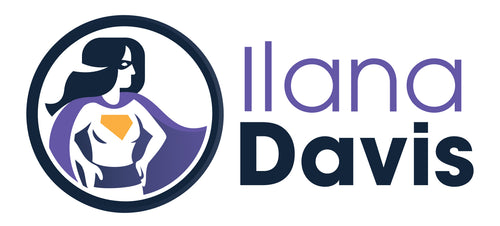Articles
Jan 24, 2023
3 min read
My response is usually, it depends on what you're trying to do. Company and product reviews serve very different purposes.
Jan 17, 2023
Just because we live in a world where everything is online, doesn't mean we can't show our personalities or make things feel more personal.
Jan 10, 2023
1 min read
Most Shopify SEO apps charge a monthly subscription fee that grants access to different features. There are a few SEO apps that charge a flat one-time fee.
Jan 3, 2023
Ilana Davis of JSON-LD for SEO, & Robert Battle of QCKBOT, answered a lot of SEO questions in this full video recording of SEO Ask Me Anything for Shopify.
Dec 20, 2022
2 min read
Overall, I'm hearing that it's been a rough year. Everyone seems to have taken a hit. I'm hoping I can give you a glimpse of positivity.
Dec 13, 2022
3 min read
SEO requires ongoing work to optimize your site as your customers' needs and requirements from Google change. A few things to get you set up for success:
Nov 29, 2022
2 min read
Email providers recommend you segment and clean your list based on engagement. "It improves deliverability," they say. I disagree.
Nov 21, 2022
3 min read
From Google Search Console, you can connect your products to Google's Shopping Tab listings using structured data all without a product feed.
Nov 7, 2022
1 min read
Collection pages drive a ton of traffic to your site. Improve your Shopify collection page rankings using this detailed SEO guide.
Nov 1, 2022
2 min read
There is a delay between when you make a change on Shopify, when Google sees the change, and when they update the search listings.
Oct 25, 2022
3 min read
The short answer is no, you don't NEED GA. It's never that simple. You can learn so much more information from GA if you know how to use it right.
Oct 20, 2022
2 min read
Instead of deleting products that are discontinued mark them as out-of-stock in Shopify.
Oct 18, 2022
3 min read
Rankings change from a lot of things and not everything is within your control. Focusing on rankings, in my honest opinion, is a crapshoot.
Oct 11, 2022
2 min read
SEO doesn't just happen and it's by no means free. SEO is earned traffic. When you earn something, someone had to put the effort in.
Sep 27, 2022
2 min read
Adding structured data for videos on your Shopify store allows you to qualify for search enhancements such as Rich Results.
Sep 22, 2022
1 min read
The JSON-LD for SEO Plus+ plan will increase to a one-time $399 payment on Oct 1, 2022, at 12 am UTC for all new customers.
Sep 20, 2022
3 min read
Google expanded your eligibility to highlight products using structured data making you eligible to show products in Google's free shopping listings.
Sep 1, 2022
3 min read
JSON-LD for SEO now integrates with subscription apps that use Shopify's Checkout Integration. Customers on the App Embed for JSON-LD for SEO have access.
Aug 23, 2022
2 min read
Shopify store owners are searching for a way to make their sites more accessible. Enter web accessibility apps. But are these apps actually helpful?
Aug 2, 2022
5 min read
Think of your FAQs as an extension of your customer service representatives. If one customer has the question, I bet others do too!
Jul 12, 2022
1 min read
Ordinarily, I'm in the "make a bunch of small tweaks and changes" camp. Heck, I built the Website Rescues for exactly this but sometimes more is needed.
Jul 5, 2022
3 min read
Make your customers shopping experience easy. Not sure where to start? Here are a few ideas to create the best experience possible.
Jun 28, 2022
2 min read
Submitting your sitemap to search engines is the same as registering where your sitemap is located. It's not to tell Google to check your site again.
Jun 21, 2022
3 min read
Shopify stores will find two major reasons why their product feeds may be declined by Merchant Center for a mismatched price.
